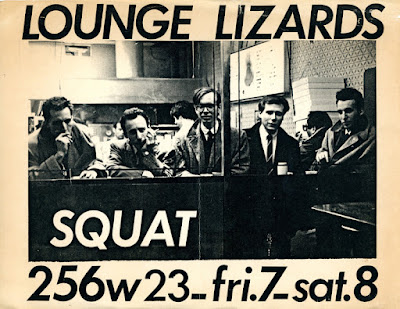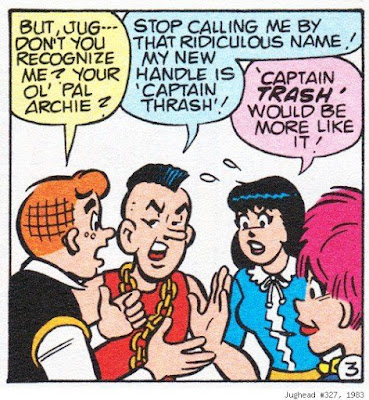THEY CALL ME THE SEEKER, OR, "THE HISTORY OF BONES: A MEMOIR" BY JOHN LURIE
I read a lot of music books that don't make it here. Right now I'm making my way through "Major Labels: A History of Popular Music in Seven Genres" by New Yorker music guy Kelefa Sanneh. It's good, and made me consider some arguments I hadn't thought of before, but that's really about all I can say about it. I read memoirs by Sinead O'Conner (oppressively sad), Billy Idol (about what you'd expect) and Mike Love, the dude in the Beach Boys that everyone hates, hoping for some funny Moby-level ire, but they didn't make it here.
"History of Bones" has been sitting on my nightstand for forever. I knew John Lurie from his roles in "Down By Law," "Stranger than Paradise," and "Fishing with John," rather than his band the Lounge Lizards. I knew it would hit that sweet spot of '70s/'80s New York where all famous cool people knew each other, but at over 400 pages, I figured I didn't need a project.
When I finally cracked the thing, it turns out that not only did Lurie have a wealth of experiences to draw from, but he can really write, with a dry, understated wit that made me want to quote the whole book rather than write a review. Like when he states about being broke, despite being a well-known actor and musician, "Perhaps I have not managed my career so well." Or his description of a hotel's floor as "carpets that had absorbed twenty-five years of vulgar activity."
Some musician memoirs describe music or the arts almost casually - probably because they're written later in life when the subject is more settled into the business and are worried more about keeping the corporation going or starting a winery or whatever than writing a kick-ass song.
"History of Bones" is the exact opposite of that. Lurie portrays himself as a seeker, an artist striving to connect with the world through his artwork. His harshest criticism is for art that falls into "the Conspiracy to Maintain Mediocrity," that doesn't push or enlighten, or even worse, is done bad intentionally or without thought behind it.
"Why are you playing music if you have this opportunity and you are okay with its not being as good as it can be? I guess it was some Matthew 26:41 shit."
Lurie grew up in Massachusetts and had a pretty eventful life, going from petty crime to spiritual retreats, fasting and hardcore meditation. He picks up a saxophone and heads to New York where he starts the Lounge Lizards, a band he described as "fake jazz" and immerses himself in the art scene.
A lot of the press for "History of Bones" focuses on his friendships and falling out with filmmaker Jim Jarmusch and artist Jean-Michel Basquiat. In Lurie's telling Jarmusch takes several of Lurie's ideas and sometimes grudgingly gives credit, "Perhaps proving this is the credit right before the copyright: "Part One from an idea by John Lurie and Jim Jarmusch,' in such tiny little letters only a dog can hear it." Other times, he steals ideas outright with no acknowledgement at all, leading to one of the best lines in the book: "I feel I have to hurry up and get this book published before Jim Jarmusch gets hold of it and puts it out as his own memoir."
His relationship with Basquiat is more complicated. The two were best friends and would send hours together, painting, playing basketball and subtly competing. Then Basquiat blows up, steals some ideas, and becomes obsessed with money and fame. While Lurie gleefully skewers Jarmusch, there is a sadness in his accounts of Basquiat.
Through it all, the Lounge Lizards carry on through legal battles, tours funded out of Lurie's acting proceeds, and a disastrous plan to sell an album through an 800 number, which ends up costing much more money than it brings in.
Lurie can be laugh out loud funny, he can be slyly witty, and he can savage someone, often in the same passage. I love his description of producer Barry Sonnenfeld: "Anyone who allows his voice to sound like Barry Sonnenfeld does cannot be someone who comes anywhere near music. His voice sounds like a duck wearing underwear that is too tight. ...As he spoke I watched the fruit in a bowl on the counter, commit suicide and wither into a pile of rotted nothing."
He also tells that old story about the garden gnome that gets kidnapped and photographed all over the world before getting returned, summing up with "I don't want to hear that that story is not true. It may be absolutely untrue, and you may know for sure it is not. I don't want to know. And fuck you for being the kind of person who would need to point that out."
I'll close with a quote about Jim Jarmusch that somehow brings me back to my memories me of why I loved Kurt Vonnegut in my late teens:
"I have written this book over a few years and have left notes to myself saying, "Don't slag Jim off." But in the end he made it impossible.
There are a lot of great things about Jim. And in some ways he is a fellow traveler. We are all flawed. We are all flawed. We are all flawed. In a way, that is the point of the whole thing, how we are all individually, uniquely flawed."
"The History of Bones" portrays an individually, uniquely flawed human constantly searching, growing, and striving, and it results in a book that lingers long after you've finished it.
Sex/Drugs/Bad Behavior
7/10. Lots of drugs and booze and sex. Lurie has a long-running heroin addiction, and is open to try just about anything. His stories are dealt with fairly matter-of-factly, neither glamorizing or demonizing, more of a 'just something I did' thing.
Opens in Media res?
Nah. opens with Lurie's first memories and proceeds fairly straightforwardly from there.
Could We Hang?
Possibly. I could see Lurie being totally entertaining, telling you all sorts of stories you're not quite sure are true but are told so well, it doesn't really matter. I could also see him freezing you out if you don't measure up to his standards.
You Might Remember Me From, or, My Totally Biased View of the Author's Best Stuff:
I never heard the Lounge Lizards, so I figured I'd start with the first album. Not bad - kind of a mix of noir soundtracks and jazz with noisy guitar work. The two Thelonious Monk tracks seem key - like they're students of the music, but also trying to take it in a different direction. Lurie is frequently upset that his music was overshadowed by his acting career, but if you've never seen 'em, you should totally check out "Down by Law" and "Fishing with John."
Percentage of Music in the Bio
Let's say 40%. While Lurie doesn't describe the process as much as some books, he finds a deep spirituality in music, and is frequently let down by music that doesn't strive for better.
Buy, Borrow from the Library, or Pass
You know what? Go ahead and buy the thing. Even if you don't care about the late '70s/early '80s New York art scene, Lurie has a unique outlook and style that will draw you in.



Comments
Post a Comment